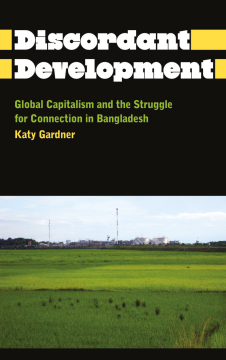
Additional Information
Book Details
Abstract
What happened when Chevron, a multinational mining company, opened a gas plant right next to densely populated villages in rural Bangladesh?
This book reveals contradictory ways that local people attempt to connect to, and are disconnected by, foreign capital. Commentators on the situation have different frameworks, whether of dispossession and scarcity, the success of Corporate Social Responsibility, or imperialist exploitation and corruption. Yet as Gardner argues, what really matters in the struggles over resources is which of these stories are heard, and the power of those who tell them.
Based on the narratives of dispossessed land owners, urban activists, mining officials and the rural landless, Discordant Development shows the real picture behind the effect multinational capital has on indigenous communities.
'Treads a finely judged line, keeping both neoliberal developers and anti-globalisation activists at arm's length in order to describe relations at a human scale, thereby doing for development what anthropology ought'
David Mosse, Professor of Social Anthropology at the School of Oriental and African Studies, University of London.
Table of Contents
| Section Title | Page | Action | Price |
|---|---|---|---|
| Cover | Cover | ||
| Contents | v | ||
| Series Preface | vi | ||
| 1. Discordant Developments: An Introduction | 1 | ||
| 2. Histories of Connection: Colonialism, Migration and Multinationals | 57 | ||
| 3. Material Connections: Resources and Livelihoods in Duniyapur | 92 | ||
| 4. Our Own Poor: Social Connections, ‘Helping’ and Claims to Entitlement | 136 | ||
| 5. Claims of Partnership and Ethical Connection: Chevron’s Programme of ‘Community Engagement’ | 161 | ||
| 6. Rumour and Activism: Politics Breaks Out | 189 | ||
| 7. Blow-out! Stories of Disconnection and Loss | 225 | ||
| Appendix: The Chevron Way | 243 | ||
| Notes | 245 | ||
| References | 257 | ||
| Index | 265 |
